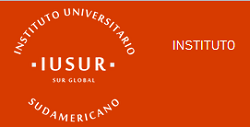The International Dimension of Academic Work at the Universidad Veracruzana: quantitative analysis
quantitative analysis
DOI:
https://doi.org/10.25087/resur15a1Keywords:
Higher Education, Internationalization, Academic Profession, Universidad VeracruzanaAbstract
The present work belongs to the group of studies on the participation of scholars in the process of internationalization of higher education. It is part of a doctoral research and is based on a theoretical framework built on considerations of cultural capital (Bourdieu y Passeron, 1970; Bourdieu, 1979), the characteristics of academic work (Clark, 1991) and the participation of scholars in internationalization (Dewey y Duff, 2009). The study aims at answering the following research question: What are the institutional and international cultural capital factors that influence the internationalization of academic work conducted by the scholars at the University of Veracruz? The research approach is mixed and the strategy is defined as sequential explanatory (Cresswell, 2009). The quantitative phase is presented here, which is a sample statistical study. The results show agreement with the main previously mentioned theoretical assumptions even if interesting contradictions require the application of a qualitative type of analysis to be fully understood.
Downloads
References
Beelen J. & Jones E. (2015). Redefining Internationalization at Home. En Curaj, A., Matei, L., Pricopie, R., Salmi, J., Scott, P. (Eds.). The European higher education area: between critical reflections and future policies. Springer. 59-72. https://doi.org/10.1007/978-3-319-20877-0_5
Bourdieu, P. (1979). Les trois états du capital culturel. Actes de la recherche en sciences sociales, 30, 3-6.
Bourdieu, P. et Passeron, J.C. (1970). La réproduction. Élements pour une théorie du système d’enseignment. Éditions de minuit.
Brunner, J.J. (2007). Universidad y sociedad en América Latina. Universidad Veracruzana.
Childress, L. (2009). Planning for internationalization by investing in faculty. Journal of International and Global Studies, 30-49.
Childress, L. (2017). The twenty first century university. Developing faculty engagement in internationalization (2a ed.). Peter Lang.
Cáceres, A., Fernández, A. y Oliva, M. (2017). La internacionalización del currículo en la Universidad Veracruzana (pp.83-106). En Corzo, R. y Hernández, M.M. La dimensión internacional en la educación superior. Experiencia y compromiso de la Universidad Veracruzana. Universidad Veracruzana.
Clark, B. (1991). El sistema de educación superior. Una visión comparativa de la organización académica. Nueva Imagen – UAM.
Cobo, C. (2016). La innovación pendiente. Reflexiones (y provocaciones) sobre educación, tecnología y conocimiento. Debate.
Cortina-Pérez, B. y Medina, A. (2019). La competencia de internacionalización del profesorado universitario. Un reto para la educación superior. Publicaciones, 49(5), 209-224. https://revistaseug.ugr.es/index.php/publicaciones/article/view/11228
Cresswell, J.W. (2009). Research design. Qualitative, quantitative and mixed methods approaches (3a ed.). Sage.
de Witt y Leask B. (2015). Internationalization, the curriculum and the disciplines. International Higher Education.83, 10-12. https://doi.org/10.6017/ihe.2015.83.9079
Dewey, P. & Duff, S. (2009). Reason before passion: faculty views on internationalization in higher education. Higher Education, 58, 491-504. https://doi.org/10.1007/s10734-009-9207-z
Drucker P. (1994, Mayo 4). Knowledge Work and Knowledge Society: The Social Transformations of this Century. https://iop.harvard.edu/forum/knowledge-work-and-knowledge-society-social-transformations-century
Hakim, M.R., Canal, M.E., Del Callejo, D.D. y Fortuno, J.C. (2020). La internacionalización e interculturalidad como ejes transversales de la responsabilidad social universitaria en una experiencia educativa virtual. Interconectando saberes, 5(10), 53-66. https://doi.org/10.25009/is.v0i10.2657
Hernández Nieto, R. (2011). Instrumentos de recolección de datos en Ciencias Sociales y Ciencias Biomédicas. Universidad Los Andes.
Knight, J. (2003). Updated Definition of Internationalization. International Higher Education, (33). https://doi.org/10.6017/ihe.2003.33.7391
Knight, J. (2012). Student mobility and internationalization: trends and tribulations. Research in Comparative and International Education. 7(1), 20-33. http://dx.doi.org/10.2304/rcie.2012.7.1.20
Knight, J. y de Witt, H. (1995). Strategies for the internationalization of higher education: historical and conceptual perspectives (pp. 5-32). En de Witt, H. (1995). Strategies for the Internationalisation of Higher Education. A Comparative Study of Australia, Canada, Europe and the United States of America. Luna Negra.
Knight, J. & de Wit, H. (2018). Internationalization of higher education: past and future. International Higher Education, (95), 2-4. https://doi.org/10.6017/ihe.2018.95.10715
Leask, B. (2015). Internationalizing the curriculum. Routledge.
Moravec, J. (2011). Desde la sociedad 1.0 a la sociedad 3.0 (pp.47-73) En Cobo, C. y Moravec, J.W. (2011). Aprendizaje invisible. Hacia una nueva ecología de la educación. Publicacions i Edicions de la Universitat de Barcelona.
Murrieta, B.C. y Martínez, J.L. (2007). Un viaje de medio siglo: la Escuela para Estudiantes Extranjeros de la Universidad Veracruzana 1957-2007. Universidad Veracruzana.
Postiglione G.A. y Altbach P. (2013). Professors: the key to internationalization. International Higher Education. (73), 11-12. https://ejournals.bc.edu/index.php/ihe/article/view/6086
OCDE. (2019). Higher Education in Mexico: Labour Market Relevance and Outcomes, Higher Education. OECD Publishing. https://www.oecd-ilibrary.org/education/higher-education-in-mexico_9789264309432-en
Ojeda, M.M., Díaz, J.E., Apodaca, C. y Trujillo, I. (2011). Metodología de diseño estadístico (2ª. ed). Universidad Veracruzana.
Oliva, M., Flores, J.O., y Hernández, M.M. (2016). Internacionalización del currículo, una expresión de la responsabilidad social en la Universidad Veracruzana. Congreso Universidad, 5(1), 101-113.
Romani-Dias, M., Cameiro, J., e dos Santos Barbosa, A. (2019). Internationalization of higher education institutions: the underestimated role of faculty. International Journal of Educational Management, 33(2), 300-216. https://doi.org/10.1108/IJEM-07-2017-0184
Romero, D. (2017). Internacionalización en casa: el Programa de Estudios sobre América del Norte (PEAN) de la Universidad Veracruzana (pp.107-116). En Corzo, R. y Hernández, M.M. La dimensión internacional en la educación superior. Experiencia y compromiso de la Universidad Veracruzana. Universidad Veracruzana.
Universidad Veracruzana. (2017). Plan General de Desarrollo 2030. Universidad Veracruzana.
Published
How to Cite
Issue
Section
License
Copyright (c) 2023 Víctor Hugo Ramírez Ramírez

This work is licensed under a Creative Commons Attribution-ShareAlike 4.0 International License.










